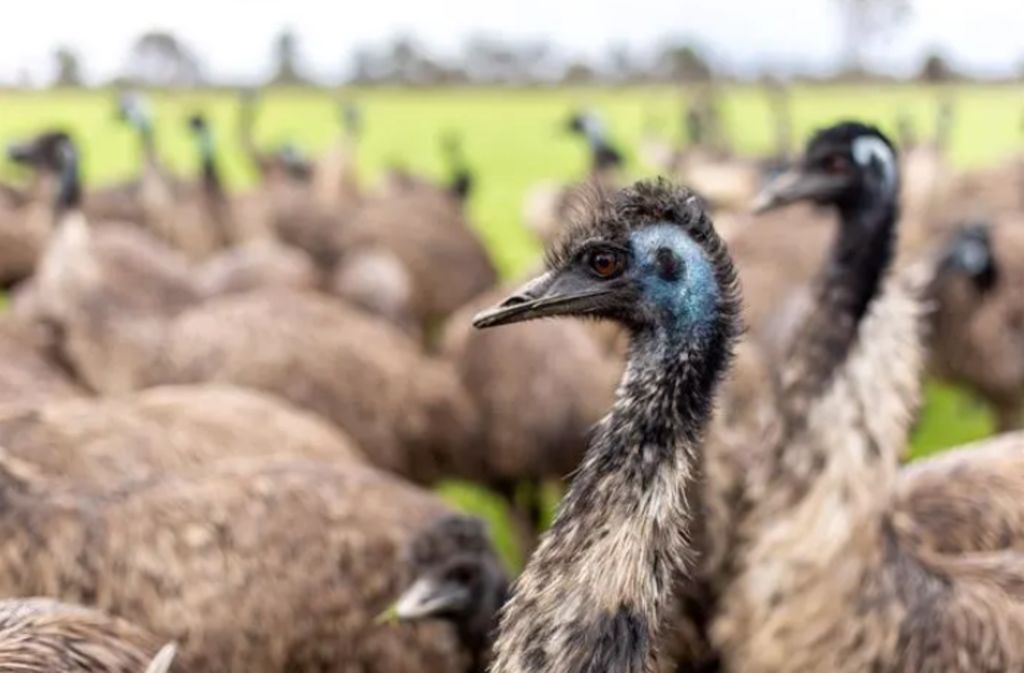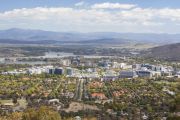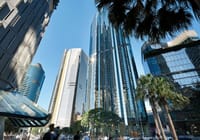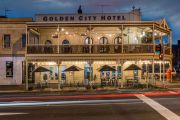
One of Australia's largest emu farms on the market as industry takes flight again
Ever thought of farming one half of Australia’s coat of arms? It turns out it could be big business – and no, it’s not kangaroos.
Emu farming has finally recovered from a sharp decline in the 1990s, with an uptick in demand for emu oil in Australia and overseas giving the sector a boost.
“The industry is going remarkably well. We’ve made a good amount of money over the past few years,” said Jeff Long, owner of what he believes is the largest emu farm in Australia, and possibly the world – Longview Emu Farm in Tragowel, Victoria.
The recovery in emu farming comes almost two decades after a collapse in the market when speculation that emu meat could become the new beef triggered a breeding frenzy. The dramatic price bubble spread as far as Texas – where a pair of breeders could reportedly fetch as much as $US50,000 during the peak. But the rush to breed ultimately led to a domestic oversupply.
It’s now emu oil that’s fuelling industry growth, driven in particular by the alternative medicine industry, which has been drawn to its anti-inflammatory properties and high levels of vitamin K2 – which several studies have linked to a protective effect on bone mineral density.
Research published by Victoria University in 2004, and funded by an emu oil company, found that osteoarthritis sufferers who consistently took emu oil or applied it to their skin experienced less pain. Industry proponents also claim that emu oil can assist with alleviating gastrointestinal issues.
“Roughly half the oil is sent overseas as a raw product and the other half is put into products produced locally [which are then shipped overseas]. In the end, 80 per cent of the oil is exported by the time it’s put into product,” said Mr Long.
The Northern Victoria farm, one of about a dozen emu farms operating nationally, supplies around two-thirds of the country’s emu oil.
“It’s possibly the biggest in the world; I haven’t heard of anywhere else in the world that’s bigger,” he said. “We’ve got 6000 birds right now [with another 3000 hatchlings expected], and the next biggest in Australia is 2000 birds.”
After almost 30 years Mr Long and fiance Jane have decided to leave the industry on a high, and have put Longview up for sale.
“I’m getting basically to retirement age…It’s time to move on and travel and enjoy life while we still can,” Mr Long said.
A long history
The farm had been in the family for generations before the emu business took flight.
“I’m a fifth-generation farmer in the district. In 1990 I took over the farm from my parents and at that stage we just could not make money out of sheep or cattle – we were going backwards fast.”
An advert in a rural newspaper, calling for farmers interested in the nascent emu industry, came at the right time.
He worked as a Victorian supplier of emu stock for other farmers in the state from the early 1990s, at a time when the industry was booming on the back of rave reviews of the bird’s meat (Qantas even tried serving emu meat on flights, with limited success).
It’s estimated that in 1996 there were about 500 emu farms in Australia.
Mr Long said that during that time, many investors were lured by ambitious growth projections.
“We bred numbers up and very quickly oversupplied the product [which ultimately] caused a collapse in the industry around 1996,” Mr Long said. “A lot of people got burnt very badly.”
As others abandoned the industry, the Longs decided to play the long game, scaling back their breeding program while they cleared excess stock.
“We were sitting on a lot of product that took about five years to clear,” Mr Long said.
In the early 2000s, they started breeding birds again. The first decade was slow, but for the past few years, business has been booming.
Easy to run
Mr Long said the most challenging aspect of emu farming was rearing chicks to a stage where they were independent.
“Once they’re five months old, and down the paddock, they’re very resilient.”
Along with sending emus to one of two nearby processing facilities, the primary duty the Longs have to do is collect the eggs from the paddock each day during the breeding season.
“Every morning we get up and take about three hours to roam around the farm and collect the eggs,” Mr Long said.
Each breeding bird produces around 30-35 eggs a year.
“[We place] about 400 to 440 eggs in the incubator every week on a Friday and then 49 days later we transfer that batch into a hatcher, and they generally hatch out about day 52 to 53.”
The Longs rotate emus between paddocks, a system which Mr Long attributes to the farm’s increase in fertility.
“The worm population on the farm is just staggering,” he said.
They run about 400 sheep as well as the emus and sell excess hay grown on the property to nearby neighbours.
They recently put a farm manager in place in preparation for their departure from the business.
While they’ve successfully managed the farm themselves, Mr Long believes the property would be best managed by an investor with the ambition to keep up with the increased demand for emu oil.
“This is a bigger enterprise than any local buyer is going to buy. Someone is going to buy it and have a manager run it for them,” he said.
But the Longs won’t be moving far – they plan on relocating to a newly-built home across the road from the farm when it sells.
Longview is on the market with Henry Mackinnon and Angus Macleod of Colliers International.
Mr Mackinnon wouldn’t be drawn on a sale price for the 221.55-hectare property.
“The property is being sold as a going concern and after reviewing recent sales in the area we expect the land to achieve between $2,000 to $3,000 per hectare. However, due to the intricacies of the business we require all parties to complete their due diligence for the total value of the business,” he said.
“It’s as unique as you can get,” Mr Mackinnon said of the farm.
The sale includes a manager’s residence and equipment as well as stock.
Longview Emu Farm is for sale by expressions of interest with the first stage closing July 26.










